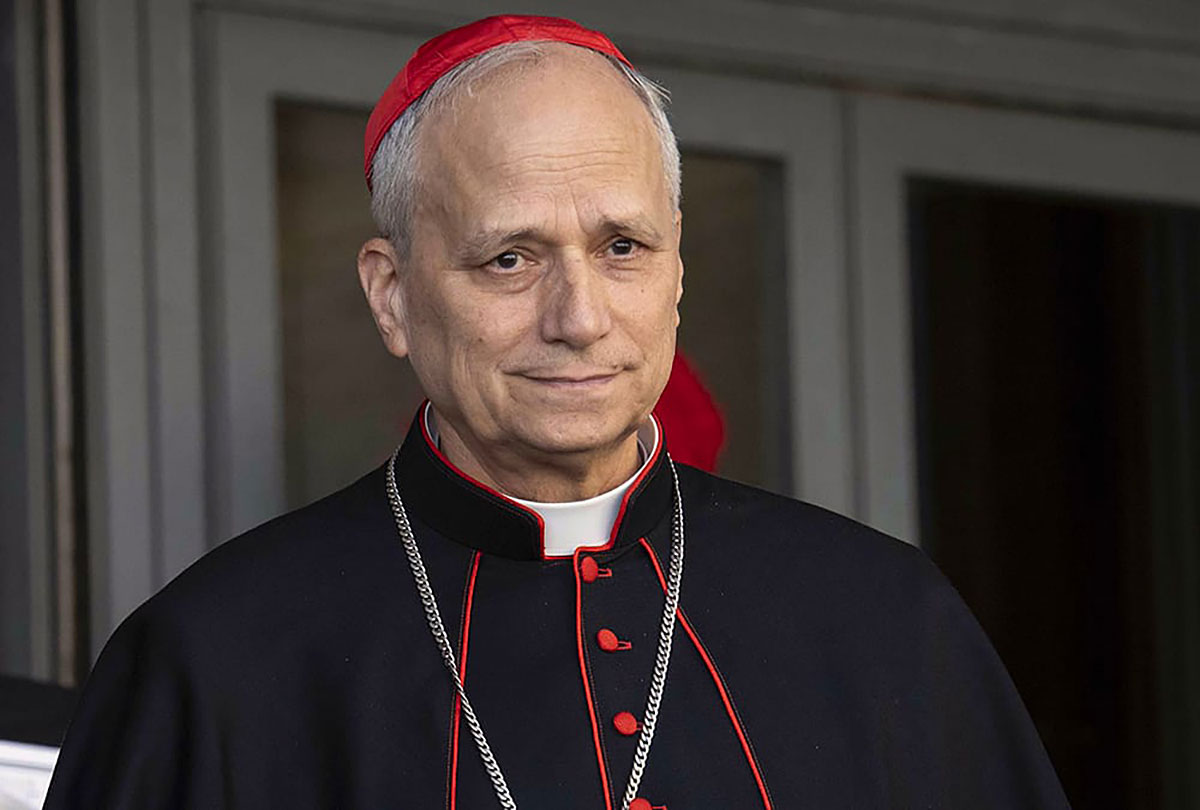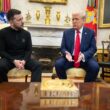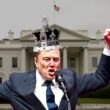At this point there is no doubt as to whether we are having an authoritarian moment. We are — but we don’t yet know how long it might last or how exactly we will exit from its grip. This week we glimpsed what may be the beginnings of a pathway out, with the historic election of Cardinal Robert Prevost as Pope Leo XIV.
We should start with the disclaimer that the Catholic Church has not been a reliable defender of liberalism or human rights, having turned a blind eye to (or even tacitly supporting) abuses by Mussolini and Hitler, as well as the massive pedophilia scandal that has rocked the Church. But evaluating the realities of this specific moment, the Church is currently in a position to serve as an important counterbalance to the autocratic, misanthropic dictators allied in their effort to upend liberal democracy.
As an American, Prevost can speak directly to United States politics in a voice that has some cultural resonance, but also to a significant constituency that is material for Republicans. While a significant percentage of US Catholics disagree with Republican positions on abortion (6 in 10 think abortion should be legal), Republicans have relied heavily on Catholic voters to win elections. A Pope willing to call out Republicans will force Catholics to choose a side. Prevost’s denunciation of Vice President JD Vance’s bad-faith interpretation of the doctrine of Ordo Amoris (using it as justification for denying rights to immigrants) is an early example of how he may serve as a moral counterweight.
But we should not expect the Pope to be explicitly political; some on the right have begun to refer to him as the “woke Pope,” but this smear is absurd on the surface. The Catholic Church is an inherently conservative organization, and in many ways apolitical itself. Gareth Gore, author of the book OPUS about the destructive Catholic cult Opus Dei (also considered to be an arch-conservative pole within the church), recently wrote that Prevost had last engaged with Opus Dei in 2020 — before many allegations of impropriety against the group were widely known.
Prevost has also been outspoken in his support for Ukraine, and against Putin and Russian aggression, marking a contrast from his predecessor. In a 2022 interview, Prevost characterized Putin’s aggression as “a true invasion, imperialist in nature, where Russia seeks to conquer territory for reasons of power.”
While many correctly note that Pope Francis was a reformer in deed (excommunicating the apostate priest Carlo Maria Viganò; removing Opus Dei as a personal prelature), in his words Francis was more inclined towards calls for peace without explicitly condemning Putin or Russia for their naked aggression. In 2024, he went so far as to demand that Ukraine show “the courage of the white flag” and negotiate with Russia. Such equivocation seems less likely from Prevost.
While many secular and political leaders might wish that we could reject authoritarianism on its own merits, and without involvement of other cultural institutions (and indeed, that would be ideal), it is wise to remember the maxim “culture is upstream of politics,” weaponized in recent years by the populist Catholic malignancy Steve Bannon. And for his part, Bannon has decried the selection of Prevost, calling it “kind of jaw-dropping,” adding, “it is shocking to me that a guy could be selected to be the Pope that had had the Twitter feed and the statements he’s had against American senior politicians.”
But reporting this week from Rome suggests that the Cardinals are focused on longer-term matters than America’s current pathologies and sideshows. Asked in a television interview whether the conclave was concerned over Trump’s juvenile portrait depicting himself in Papal vestments, Jesuit priest James Martin suggested the Church had bigger concerns. Americans would do well to remember that we are not the center of the world, and that compared to the mission of long-term renewal the Church must undertake if it takes its doctrine seriously, our internal politics barely rank.
Prevost also made an interesting choice in his selection of the name Leo. In his introductory speech this week he said:
I chose to take the name Leo XIV. There are different reasons for this, but mainly because Pope Leo XIII in his historic Encyclical Rerum Novarum addressed the social question in the context of the first great industrial revolution. In our own day, the Church offers to everyone the treasury of her social teaching in response to another industrial revolution and to developments in the field of artificial intelligence that pose new challenges for the defense of human dignity, justice and labour.
This suggests that Prevost correctly understands his role as the first A.I. Pope, and however one may feel about the emergence of that technology, it will undeniably be a factor in how the coming decades unfold, just as the Industrial Revolution was during the papacy of Leo XIII (1878-1903). Acknowledging that parallel suggests an inclination towards active engagement in the controversial forces shaping our time, and an enduring interest in dignity and justice.
Global Vibe Shift
The United States has been in a disastrous downward spiral since January, with a collapse in the rule of law and self-inflicted economic wounds in the form of ridiculous, harmful tariffs. Trump has failed to effect a negotiated settlement to the Ukraine war. We have failed to pass a budget, and treasury secretary Bessent has now warned that we must extend, suspend, or eliminate the debt ceiling by mid-July in order to avoid a catastrophic default on debt and global economic collapse. Trump adviser Stephen Miller has also made public statements toying with suspending the writ of habeas corpus, which has predictably prompted howls of public outrage.
How we navigate the next few months will determine the course of the next several decades. Whether Pope Leo can inject the right cultural leverage to alter our trajectory remains to be seen. But in lieu of any effective political leadership emerging to counter our illiberal turn, we could do worse than reach for a “Hail Mary” right now. And at the very least, a more vocal Pope that is willing to stand up for truth over lies should be welcomed as an ally in the fight against fascism.
Dave Troy is an investigative journalist covering the intersection of technology and democracy. With a background as both a tech entrepreneur and historian, he brings his unique perspective to analysis of geopolitics, information warfare, and other current events. He is currently the publisher and editor of America 2.0, a news site focused on the future of democracy in America and around the world. Dave speaks frequently at conferences on information warfare, and hosts the podcast Dave Troy Presents.







0 Comments